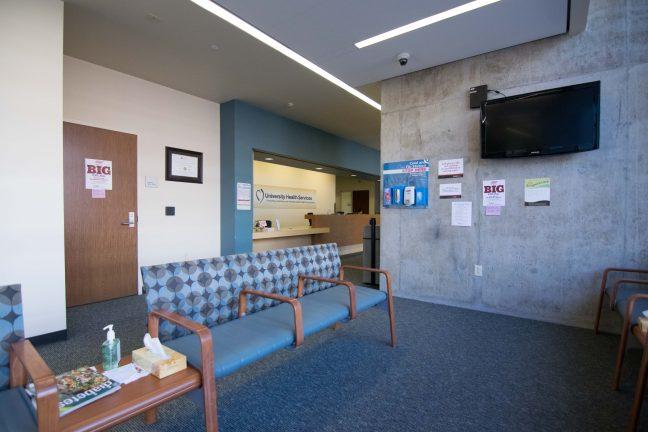University of Wisconsin Doctor of Pharmacy degree students created an application to assist cancer patients in tracking care and are kick-starting their own company, according to an article on the UW School of Pharmacy website.
Fourth-year UW PharmD students Griffin Budde, Dean Bowen and Graham Edwardson presented their application, Pegasus, at the UW School of Pharmacy’s second annual SHARx Tank competition, according to the article.
The students launched Pegasus Health Applications, LLC, and are working to develop a prototype to test and optimize the app, according to the article.
As reported by the article, SHARx Tank was launched in 2018 by the School of Pharmacy to help provide a platform for entrepreneurially-minded pharmacy students to pitch ideas to a panel of judges and compete for funding. The winner receives $4,000 and the second team receives $1,000, all donated by UW alumnus and ZEDPharma CEO George Zorich.
According to the article, Budde, Bowen and Edwardson, the winning team for the SHARx Tank last year, presented to the panel their idea of a mobile health app — Pegasus.
Budde said the idea first developed during a long study session for an oncology final examination, where the Budde, Bowen and Edwardson started talking about how cancer patients were being cured and managed.
“The way patients are being managed and cared for [now] is a lot different,” Budde said. “Instead of the patients going into their doctor’s office to receive their medication, they are now being sent their oral oncology through the mail, and [the process] was very … regulated.”
Budde said before developing the idea, the team was also aware of the numerous health apps catered to different types of health problems already available on the market.
But they questioned how many of these apps were actually used by patients, if they were effective and how many of them were backed by science or created by healthcare professionals, Budde said.
“There’s a gap in the standard of care when it comes to monitoring and giving the patient all of the tools necessary to manage their fight against cancer,” Budde said in the article. “That’s the gap that Pegasus Health Applications is going to fill.”
After developing the idea, the team decided to participate in the SHARx Tank competition to put it to the test.
In the months leading to the competition, the team regularly met with Zorich and Pharmacy Practice Division Chair and Assistant Dean for Assessment, Teaching and Learning professor Beth Martin.
According to the article, Zorich and Martin co-lead an entrepreneurship club for pharmacy students. Martin said throughout the spring semester last year, the club met up for five sessions in total to prepare students for the SHARx competition.
“You can’t just teach [entrepreneurship]. [Students] got to have a sense about themselves … they have the spirit to be an entrepreneur. They just have to find that,” Martin said.
As part of the preparation process, according to the article, the team gradually fine-tuned their idea through constant discussions with Zorich and Martin, as well as other peers in the entrepreneurship club and cancer patients.
Budde said having the chance to interact with real patients and learn about their struggles gave the team a reason to pursue the project.
“It wasn’t this huge thing in the very beginning, but as we started working on it, we entered the competition,” Budde said. “We … really saw we can have a positive impact if the patients are cared for.”
Other peers in the entrepreneurship club played an important role in helping the team constantly improve on their idea, Budde said.
Budde said during the first few sessions, other students in the club were still hesitant to “poke holes” in their project, but later, other peers felt more comfortable pointing out potential problems.
“[The judges] have been in the industry ten, twenty, thirty years. They are very well respected. Presenting these things, they are going to ask tough questions, so it sorts of gets you ready [for the competition],” Budde said.
Going forward, Budde said there are plans to set up an advisory board consisting of established professionals, such as specialties, pharmacies, directors and technical engineers to help bring the app to life.
UW develops plans to use interactive maps to visualize antibiotic resistance data
Given the existence of different health apps already present in the market, the ultimate goal is to create one app combining all features of other apps within one interface, Budde said.
“It will be much easier for patients that are maybe lower in health literacy, or education, or come of a difficult background, or older patients who may not as well-versed in technology,” Budde said. “And if you can teach them how to use just one interface, we’ll be able to help so many more patients.”
Budde said the team also plans to participate in the Transcend Madison Competition this April to present their idea and compete for more funding.


